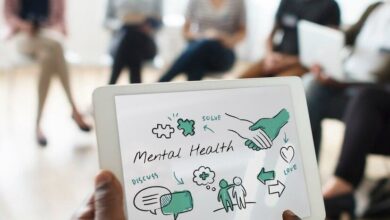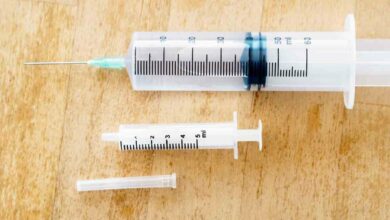Pregnancy Symptoms: Early Signs of Pregnancy

Early pregnancy and premenstrual symptoms are often similar, making it hard for a person to tell whether they might be expecting. Some women may also not experience any typical early signs of pregnancy.
When should you take a pregnancy test?
It takes time for the hormone hCG to build up in the body. It is often advised to wait until you miss your period before taking a home pregnancy test. Before this point, the pregnancy test may show up as unfavourable, even if you are pregnant.
Do all women experience early symptoms of pregnancy?
Every woman is different and so are their experiences of pregnancy. Not every woman encounters the same symptoms or even the same symptoms during their different pregnancies. Also, as the early pregnancy symptoms often mimic the symptoms you are likely to experience right before or during menstruation, it may be hard to realise that you are pregnant.
In this article, we have curated some of the most common early symptoms of pregnancy. If you notice some of these symptoms, be sure to take a pregnancy test.
A. Early Signs of Pregnancy
Pregnancy symptoms often differ from one woman to another and from pregnancy to pregnancy. However, one of the most significant signs of pregnancy is missed periods. But, the surest way to learn if you are pregnant is to take a pregnancy test. The article explores changes that can indicate pregnancy in the early stages.
Most Common Early Indications of Pregnancy
- Missed period: If you are in your childbearing years and are experiencing a delay in your regular menstrual cycle by a week or more days, then it might be an indication that you might be expecting. However, this symptom can often be misleading if you have irregular menstrual cycles to begin with.
- Tender and swollen breasts: The hormonal changes in the early days of your pregnancy might make your breasts sensitive and sore. The discomfort is likely to decrease after a few weeks as your body gets accustomed to these hormonal changes.
- Nausea with or without vomiting: Morning sickness often begins in the first month of the first trimester of your pregnancy. It can strike at any time during the day or night. However, this symptom is often experienced by some women, while some may never experience it. While the cause of nausea during pregnancy is still not clear, pregnancy hormones play a significant role.
- Increased urination: Pregnant women often find themselves urinating more often than usual. The amount of blood in the body increases during pregnancy, pushing the kidneys to process extra fluid in the bladder.
- Fatigue: Fatigue ranks at the top of the list of early symptoms of pregnancy. During the initial days of pregnancy, the levels of the hormone progesterone soar, making you feel sleepy.
When do pregnancy symptoms often start?
Pregnant women often experience symptoms within a week of conception. Some often report that they did not experience any of the mentioned symptoms for a few weeks.
B. Other Symptoms of Pregnancy
Other less evident symptoms of pregnancy that women often experience during the first trimester include:
- Moodiness: The flood of pregnancy hormones in the body in the first trimester can make them unusually emotional and weepy. Mood swings are also common.
- Bloating: Hormonal changes during early pregnancy can cause pregnant women to feel bloated, similar to the feeling at the start of a menstrual period. Read here to learn how to reduce bloating during pregnancy.
- Vaginal discharge: An increase in vaginal discharge is a common symptom of pregnancy. If the discharge is associated with pain, itchiness, or pain at the time of passing urine, then it may be a sign of infection. It is advised to seek treatment from your general physician.
- Vaginitis: Inflammation of the vagina, vaginitis is a distressing complaint of many women. It is more frequently experienced by pregnant women. Some causes of vaginitis often include vaginal thrush, bacterial vaginosis, trichomoniasis, and chlamydia. It is advised to consult with a gynaecologist for diagnosis and treatment.
- Cramping: Some pregnant women often experience mild uterine cramping in the first trimester of their pregnancy.
- Constipation: Pregnant women often complain of constipation. The pregnancy hormones and changes in the body cause the digestive system to slow down, leading to constipation.
- Food aversions: Pregnant women become more sensitive to certain odours, and their sense of taste also changes. Like other pregnancy symptoms, food aversions can be a result of hormonal changes in the body.
Key Takeaways
- Symptoms of early pregnancy constitute the following:
- missed periods
- nausea and vomiting
- swollen breast
- tiredness
- frequent urination
- Many of these signs can also be caused by other factors, including stress or illness.
- If you experience any of the symptoms and feel that you may be pregnant, it is best to consult with a gynaecologist before arriving at any conclusion.
Also Read: Keto Diet Plan for Weight Loss -Foods to Eat and Avoid
Are you Expecting Some Pleasant News?
Many of the above-mentioned signs and symptoms are not unique to pregnancy. While some can indicate that you are expecting, others can indicate that your next menstrual cycle is about to start. Likewise, some women can be pregnant without experiencing any of these symptoms.
Pregnancy symptoms are often different for every woman and can even be distinct from one pregnancy to the next. The symptoms often start at different times too. While some women immediately know they are pregnant, others may go months with no specific pregnancy symptoms.
That said, these are some of the early signs and symptoms of pregnancy that are common in the first trimester. They are likely to be caused by a surge in the pregnancy hormone( human Chorionic Gonadotropin [hCG]) along with a rise in estrogen and progesterone.
However, if you miss your monthly menstrual cycle and are experiencing some of the above signs or symptoms, it is advisable to take a home pregnancy test or consult your physician. If your home pregnancy test is positive, make the first available appointment with a gynaecologist. The sooner you confirm your pregnancy, the sooner you can start prenatal care.












